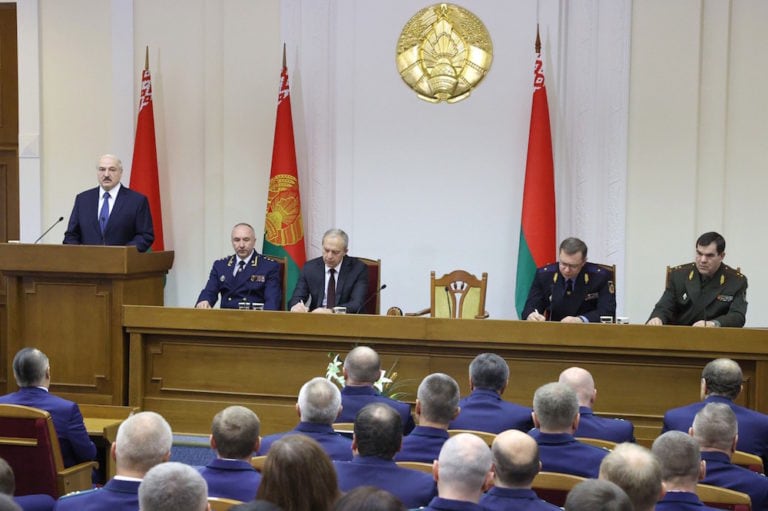(IPI/IFEX) – The following is a 12 January 2007 IPI press release: Vienna, 12 January 2007 IPI Protests Newly Planned Measures Against Belgian Broadcaster RTBF After Fake News Story According to information provided to the International Press Institute (IPI), the Walloon regional parliament has adopted a motion recommending new measures to prevent the repeat of […]
(IPI/IFEX) – The following is a 12 January 2007 IPI press release:
Vienna, 12 January 2007
IPI Protests Newly Planned Measures Against Belgian Broadcaster RTBF After Fake News Story
According to information provided to the International Press Institute (IPI), the Walloon regional parliament has adopted a motion recommending new measures to prevent the repeat of false news stories such as the one shown on the French language public service television channel, RTBF.
Shown on 13 December, the fake documentary appeared as a breaking story during the evening news programme and was presented by the channel’s journalists.
Lasting 90 minutes, the documentary provided reportage on the supposed secession of Flanders from Belgium. According to the story, the Flemish regional parliament had voted to secede from Belgium after becoming disenchanted due to years of financially supporting its poorer neighbour, the French-speaking region of Walloon.
In support of the fake news story, the channel showed pictures of congested roads, banner waving crowds, and speculative commentary that the monarch of Belgium, King Albert II, had decided to flee the country and seek refuge in the Democratic Republic of Congo.
As a result, thousands of concerned Belgians called RTBF and the channel’s Web site was forced off the Internet. Seeking to allay the public’s fears, the channel carried an on-screen message – 20 minutes into the broadcast – informing viewers that the story was false. The fake documentary caused widespread outrage and was later condemned by Belgian politicians.
In its recommendations, the Walloon regional parliament, which stopped short of imposing penalties, said there was a need for the creation of an ethics committee within RTBF empowered to expose unethical practices. It also recommended the need for clear guidelines on the broadcasting of a variety of programmes, particularly those that have a fictional content or which seek to deceive the public.
The motion went on to suggest that the guidelines should be developed by the Belgian broadcasting supervisory body, the Conseil Supérieur de l’Audiovisuel (CSA). Finally, the report called for the formation of a government committee tasked with educating and monitoring the work of journalists.
Commenting on the parliamentary motion, IPI Director Johann P. Fritz said, “Although it may have been right for parliament to debate this topical issue, the motion infringes the accepted convention that governments and politics should be held at arm’s length from public service media.”
“While I accept that there may have been those who were offended by this false news story, its intention was to provoke debate inside Belgium; as such it was successful and it is defensible under European case law, which acknowledges the media’s right to shock or offend in the appropriate circumstances.”
“By inviting the CSA to devise guidelines, the motion is encouraging outside interference in the right of a broadcaster to make its own independent editorial decisions on content. However, the call for a government committee to ‘monitor’ and ‘educate’ journalists could expose the media to political pressure and possible censorship. Such an act would be in total contradiction with the principles of journalistic independence in a democratic society.”
“RTBF must be allowed to resolve any outstanding issues itself, and where considered necessary, create its own independent mechanisms to meet the highest possible journalistic standards. However, this cannot be done in an environment where there is the threat of political interference,” Fritz added.


